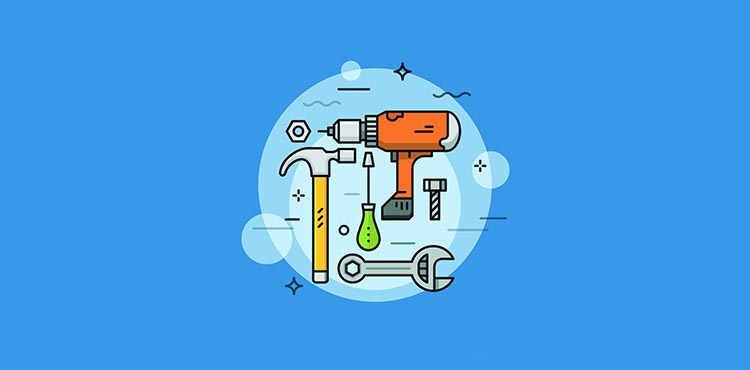The constant progression of digital transformation has pushed Human Resource executives to explore new leads, technologies, platforms, and functioning tools. Encouraging staff members to use modern communication tools and equipment increases lead generation, consumer engagement, and ROI.
The introduction of AI, internet of things, cloud storage, and blockchain has taken the world by a storm. Thanks to these innovations businesses of all sizes are now witnessing a paradigmatic change in their work processes.
They increase efficiency, reduce costs, enable differentiation, and strengthen and drive growth in an organisation. Thus, businesses feel the need to secure these potential benefits in their workplace at a heightened rate.
But, in the hurry to get these entities, one forgets to place a set of ethical guidelines about the implementation of such technologies. Appointing these guidelines, help in having a fair and honest work environment for all employees and dodges unnecessary conflicts in the business.
Majority of the businesses are adapting these high-tech solutions and it has become evident that a framework of ethics on digital technologies will be required for all. This regulatory framework will warrant that all employers and workforce are functioning and handling data within acceptable ethical boundaries and not for any sort of misuse.
Maintaining a strong focus on company values and ethics when collecting, handling, and exploiting data is precarious to its success. With the advancement in technology, companies embrace new tools and devices to increase efficiency, cut down costs and deliver products and services to customers on time.
Throughout this, HR managers need to ensure that they’re providing an ethically secure environment for employees to have a good experience, regardless of the array of hurdles and pressures.
No doubt, acting as the moral heart of an organisation is an overwhelming mission. Thus, HR officials who promote strong ethical principles and a fair work environment will always have employee confidence and trust. Here are some major ethical responsibilities of HR in this ever-transforming digital world.

Prioritising professional development
All fields and sectors in business go through frequent updates and changes due to the progression in technology. Human Resources is an evolving and growing field, where one has to stay up-to-date and polished on all the new skills and technicalities.
Staying informed about such developments helps in decision-making, recruiting, performance management and other organisational matters. Furthermore, new recruitment in the HR department must own the ability to exploit data and technology to make power moves.
HR professionals have to encourage practices within the organisation that provide a safe and positive work environment for employees and customers. A set of skills HR must hold today:
- How to recruit, improve, and manage people within the firm.
- How to unite, empower, and progress the organisation.
- How to handle, control, and use data and technology.
One can polish these skills to perfection with proper guidance, study, and research as long as you have the resilience for it. The digital transformation of businesses doesn’t wait for no one, so we must stay relevant, and strategic for the benefit of the organisation.
Becoming Well-versed with Data, Research, and Technology
HR executives today are equipped and empowered by technology. Which means recruits should be familiar with data handling, analytics, software, mobile tools, and other innovations. Each member of the HR department must show a willingness to learn and handle data and facts to promote a digital-friendly environment within the organisation.
Once you understand the impact of innovative technology, you can put in place new management practices to improve productivity and success rate. You will find a drastic change in employee performance and productivity.
Maintaining a Balance
In today’s digital-friendly world, HR managers must educate leaders and employees about the ethical use of data and information. While it is encouraged that organisations should be more transparent, too much transparency can be tricky to handle.
There should be some level of restraint to not land the company in any hot waters. Excessive transparency leads to accumulation of rumours or unnecessary speculation that puts employees under stress.
Also, if a business is currently suffering or having financial difficulties, workers might begin to wonder how it impacts their future and starts questioning their job stability. Warn employees to not share unverified information, digitally or verbally, amongst peers in the company.
HR executives have to control the flow of information and “gossip” in a business to avoid unwanted tensions that would affect the productivity and environment. Such decisions are no longer tasked to IT departments but filed under the responsibility of HR to ensure ethical practices in an age of transparency and digitisation.
It is important to track the use of data and digital tools within an organisation, as well as the information being passed on.

Image: Unsplash
Reducing Paper Waste in the Workplace
HR officials also need to pay extra attention to environmental issues and encourage acts that respond to climate change and minimising pollution and waste. Reducing paper usage in the business can play a huge part in decreasing the wastage of paper and waste production.
Likewise, it also promotes a more environment-friendly community which leaves a great impression on customers.
Instead of wasting ink and paper, employees should go digital by saving soft copies of official paperwork. Employees aren’t required to move from their seats and you don’t have to worry about them moving around unnecessarily to go to the printing room. Other benefits include:
- Lesser storage space required for documentation.
- Much easier to backup when stored on a laptop or desktop.
- Files and important documents can be forwarded through emails. No bookkeeping required.
Install reliable and efficient editing software on all the systems, which allows pdf to doc conversion as well. This way employee can forward documents and files of any format. While it is not an easy job to go completely digital and cut down on paper usage, it is well worth it. It reduces operational costs, decreases the storage space needed, and also helps the environment.
Keeping Information Confidential
Nowadays, digital tools track employee behavior at work as well as consumer activities online. The result is an influx of personal data brought into a business’s workforce without any clear regulatory framework followed.
Introducing modern technologies in an organisation often tests a Human Resource executive’s responsibilities. HR managers try to understand the potential of these tools and their pros and cons.
A slight misuse of the data obtained can put the business at stake and leave a huge impact on the customer base as well. So, it is highly advised to inform and educate employees on how to handle and filter sensitive date.
Providing a safe and hygienic work environment
One of the main responsibilities of HR is to provide a safe and clean work environment for employees. This is something that’s often put off to focus more on busy production schedules and increasing workload. But, it affects the efficiency and behavior of an employee. A mess-free and clean workplace motivate employees to perform at their highest.
Having electrical wires surrounding your workstation is hazardous. You can’t have employees tripping or hurting themselves by coming in contact with any cabling. Also, finding dust and dirt over your keyboard, desktop, carpeting, and other hardware can affect their functionality and irritate an employee’s allergies.
HR executives must observe the environment to make sure they’re cleaned and maintained to guarantee that employees are happy, healthy and productive. Dingy and dirty carpets leave a bad impression on customers and potential clients while also causing health issues for employees.
Tech age has made this part of the HR’s job as easy as more and more companies have gone digital for marketing their services. For example, if your business is in London, then search a phrase like London carpet cleaners.
You can look up the companies and their reviews for selecting one that will give your office carpeting a fresh new look. Everyone enjoys arriving at a neat and professional-looking room so observe their concerns to make sure they’re comfortable while performing their daily tasks.
In Summary
To conclude, HR teams must enable themselves to become more acquainted in the digital world of business. Currently, startups and booming organisations accepting these innovations have solved a load of work issues. They have recognised that traditional HR practices alone won’t cut it and have to be re-engineered to drive success in today’s economy.
All around, HR professionals face a plethora of challenging hurdles and obstacles but if done right, they can be rewarding. They must play a key role in working with and throughout the company to ensure ethical practices in an era of transparency.
After all, they aim to give the business a purpose by enhancing and refining employee experience. Navigating through each of these responsibilities with a focused determination will assist you in appointing a talented workforce that can adapt new skills and know-how in the digital transformation age.
About the Author
Shawn Mike has been working with writing challenging clients for over five years. His educational background in the technical field and business studies has given him the edge to write on many topics. He occasionally writes blog articles for Dynamologic Solutions.



